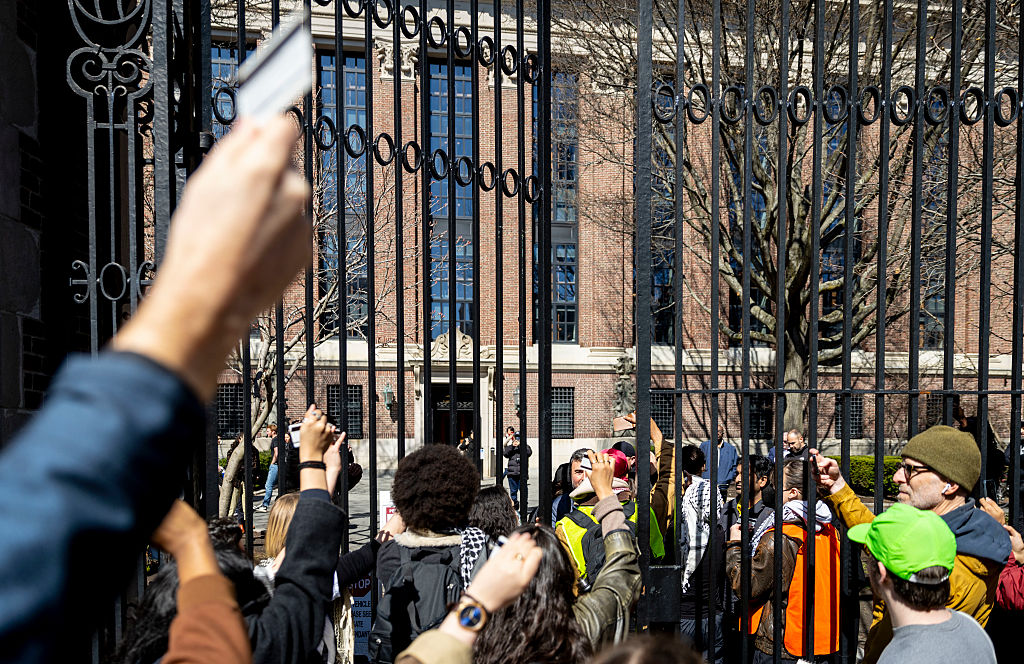5 costs private student loans can cover
Investing in your education is one of the most important decisions you can make — but with the costs of college as high as they are right now, it can be tough to pay out of pocket. After all, not everyone has nearly $40,000 on hand to pay for their education, which is what the average cost of college is per year as of August 2023.
But the good news is that you don't have to come up with tens of thousands of dollars in cash to pursue your educational goals. There are numerous financial aid options you can pursue, including scholarships, grants and federal student loans, which can be used to help offset the costs of college.
And there's another option to consider as well: private student loans. While federal student loans offer unique protections for borrowers, they don't always cover the full costs of your education. That's where a private student loan can help. These loans can bridge the gap between your tuition and available federal loan and grant funds. Plus, you can use private student loans to cover other educational costs, too.
Explore the private student loan rates and terms available to you now to learn more.
5 costs private student loan can cover
The cost of attending college can add up quickly. If you're wondering whether a private student loan can help ease the financial burden, here are a few different costs these loans can cover.
Tuition and fees — and not just for undergrad
Tuition and fees are typically the largest components of your education expenses. While private student loans can be used to cover your undergraduate tuition, they aren't limited to students pursuing bachelor's degrees. These types of loans can also be used to cover graduate and professional program costs if you need this type of funding.
In fact, they may be a smart option for certain borrowers in professional or graduate programs because they come with much higher loan limits compared to federal loans, making it easier to cover the high costs of these types of programs. Plus, private loans can provide flexibility in regard to choosing where you attend school, as they aren't limited to just the schools eligible for federal loans.
The new school year starts soon. Find out more about your private student loan options here now.
Room and board — and not just your dorm
Living on or near campus can be an essential part of the college experience for some students. And in many cases, it may make the most logistical sense, especially if you have early classes or are relying on public transportation rather than a car to get around. But living on or near campus can be pricey, and if you're on a limited budget, it may be tough to cover the costs.
Private student loans can help cover the costs of your room and board, including dorm fees or off-campus housing expenses, like rent for an apartment or a home. This financial support allows you to focus on your studies without worrying about housing costs. If you take this route, though, just be sure to budget for reasonable housing options to make the most of your private student loan funds.
Textbooks and other materials
The cost of textbooks and other study materials can add up quickly. And if you're taking specialized courses or graduate-level resources, the textbook costs can compound even quicker, as these textbooks are typically much more expensive than undergraduate textbooks.
If you qualify for a private student loan, it can be used for these types of costs in addition to room, board and tuition. This helps to ensure you have your textbooks, as well as the online resources and materials necessary to excel in your studies.
Transportation costs
While in school, chances are you'll need to pay for transportation of some sort — whether or not you own a car. Most students need to commute to campus and travel back home during breaks, or make trips to get groceries, visit friends or run errands. And, the related transportation costs can accumulate quickly.
You can use some of your private student loan funds to cover expenses related to commuting, public transportation, or even flights for students attending schools far from home. By using these funds wisely, you can ensure that you're able to access your education without being limited by transportation costs.
Personal expenses
Attending college also comes with various personal expenses, such as hygiene products, clothing and essential daily items — like groceries, food, technology for school or other miscellaneous purchases. Private student loans can provide the necessary funds to cover these costs, but remember that you should borrow responsibly so you aren't racking up unnecessary college debt to maintain a lifestyle that ultimately isn't worth the price tag.
Tips for responsible student loan borrowing
While private student loans can be an invaluable resource, it's important to borrow responsibly to avoid overwhelming debt. Here are some tips to keep in mind:
- Explore other financial aid first: Before resorting to private student loans, explore scholarships, grants, and federal student aid options, which generally have more favorable terms and conditions.
- Research and compare: Before choosing a private student loan, research different lenders, interest rates, repayment terms and other terms and conditions. Compare offers to find the loan that best suits your needs.
- Borrow only what you need: It can be tempting to borrow more than you need, but it's essential to stick to covering only your education-related expenses. Avoid using student loans for non-educational purposes.
- Understand the repayment terms: Familiarize yourself with the repayment terms of the loan you're choosing. Some lenders offer flexible repayment options, while others may have fixed schedules. Make sure you understand when repayment will begin and what your monthly payments will be.
- Consider co-signers: If you're a student without a credit history, having a creditworthy cosigner can help you secure a better interest rate. Keep in mind that cosigners are equally responsible for loan repayment.
The bottom line
Private student loans can be used to cover a wide range of educational expenses, making them a valuable tool for students pursuing higher education. By understanding the costs that private student loans can cover and borrowing responsibly, you can maximize your college funds without sacrificing your financial well-being. Just remember that investing in your education is an investment in your future, so approach your financial decisions with careful consideration.




